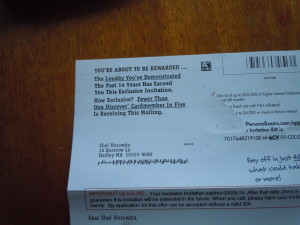Why I Don’t Watch TV News

When I’m in airports, fitness centers, and other places that force-feed TV news, I’m always astonished that anyone takes it seriously. Even in the 60s when they had real news staffs, it was so superficial. I read somewhere that an entire 1-hour newscast transcript would only fill a couple of columns on a page of the NY Times.
These days, it’s far worse than “if it bleeds, it leads.” Murder, mayhem, celebrity gossip, and an astonishingly small amount of actual news, and even less serious analysis. And those are the serious networks. Add in a serious case of propaganda and distortion and you can’t be surprised at how little most Americans understand their world, if they accept what’s fed to them by the medium they’ve chosen to “consume” the news.
Of course, the good news is that anyone who wants to educate themselves now has unlimited choices from around the world. My favorite newspaper these days is London’s The Guardian. I don’t think I’ve ever seen an actual paper copy.
In the 1980s, I used to subscribe to a magazine called World Press Review, which featured reportage on the same story from 8 or 10 different papers around the world; it was like a one-stop course in media literacy and the nature of 1) matching message to audience, and 2) shaping the audience through the message. Since I made (and continue to make) my career as a marketer and a journalist, these were crucial lessons.
However, it was a monthly, and the stories were at least three months old by the time they got to my mailbox. Of course, technology has passed it by now, and I don’t miss it; we can easily get the same effect by viewing the same story on NPR, Fox News, Al Jazeera-English, the New York Times, Paris Match (which Google will even translate for you, sort of), and your local newspaper.


